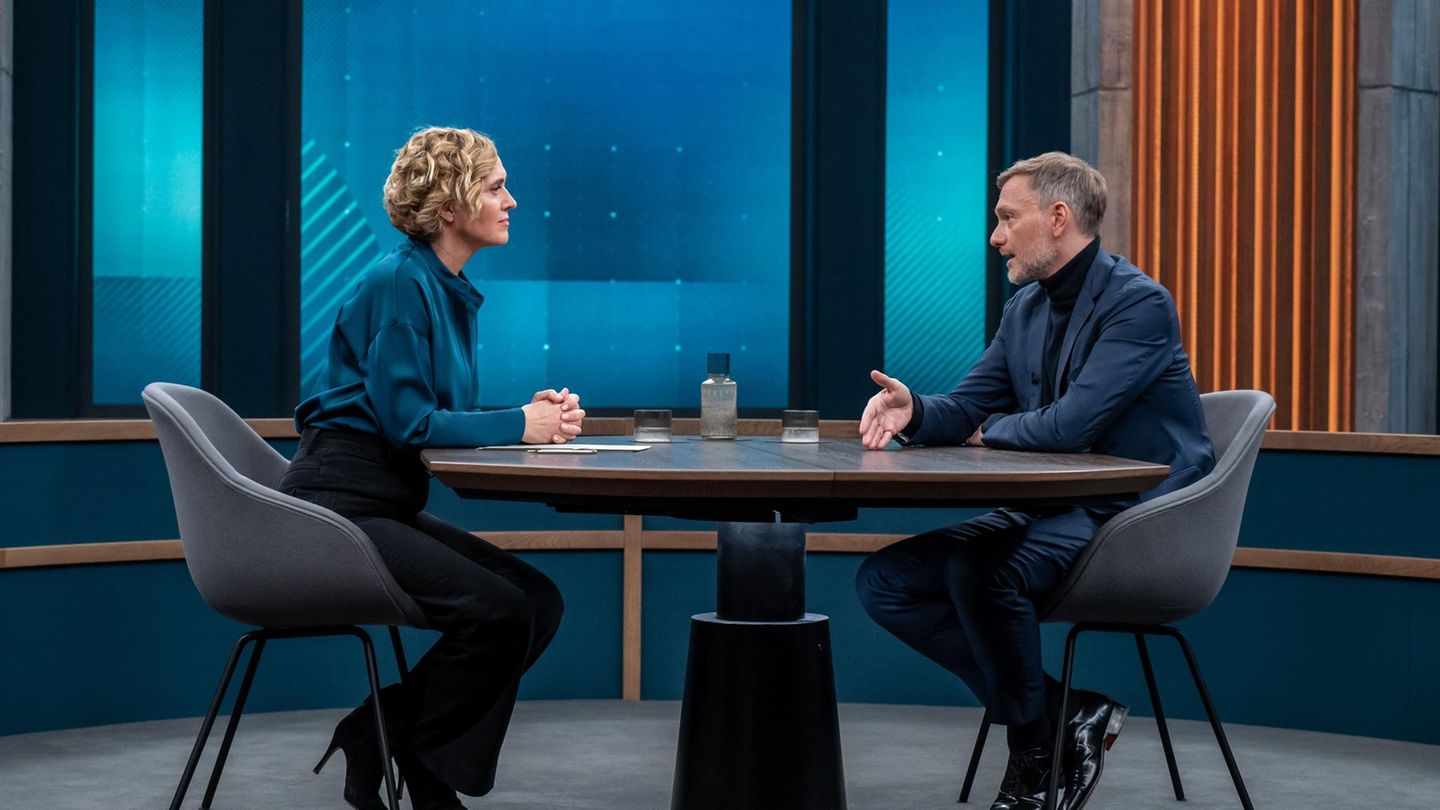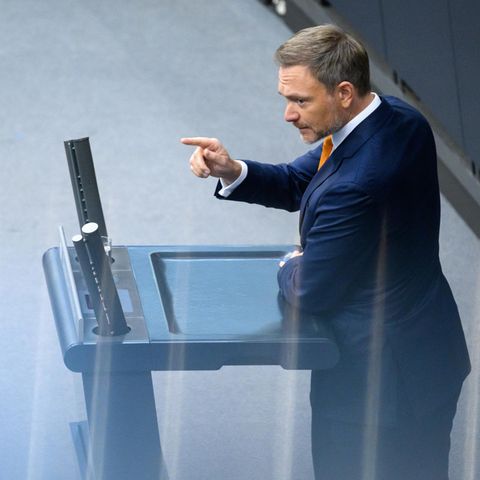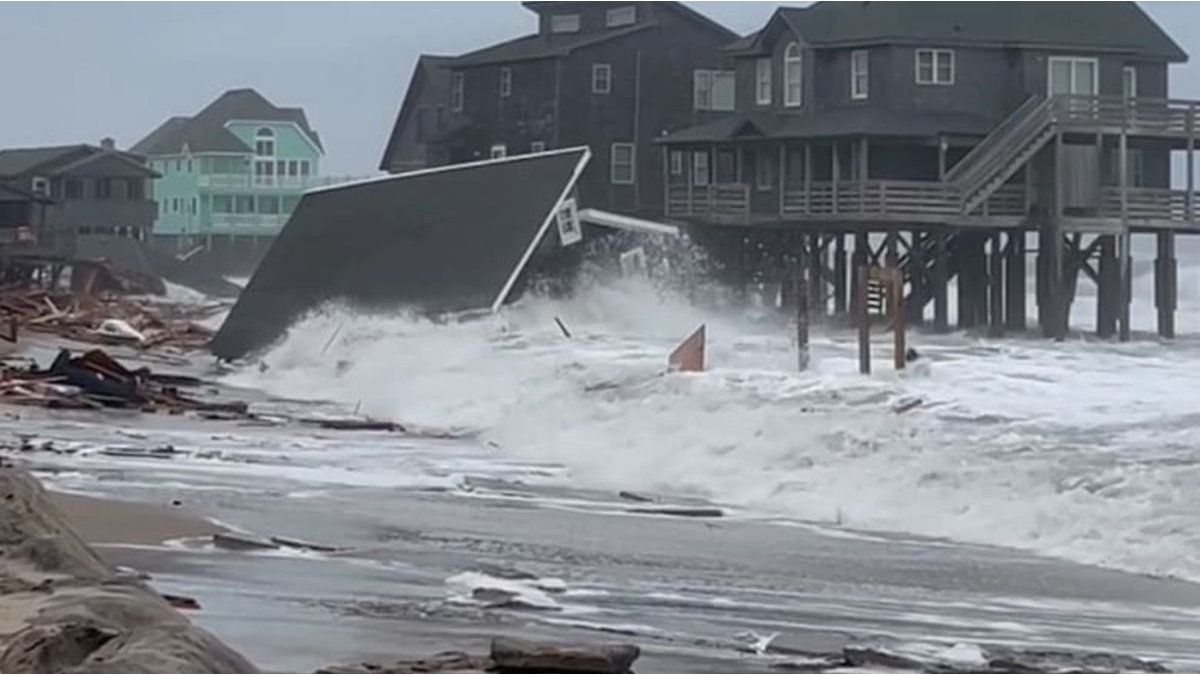“Caren Miosga”
Christian Lindner gets entangled in contradictions
Copy the current link
Christian Lindner wants to cheat his way through the deep crisis in his party with empty phrases. The FDP leader doesn’t like the fact that Caren Miosga won’t let him get away with it.
As Nonpology is an apology that is actually not an apology. Christian Lindner performed a particularly long version of this on Sunday evening at “Caren Miosga”. There he apologized for “mistakes in dealing with punctures” and for poor “crisis communication”.
The criticism against him is aimed at something completely different: that Lindner publicly acted as if he wanted to save the traffic light while the FDP was preparing to break it. “This is a massive accusation,” says Miosga. As “Zeit” and “Table Media” had researched, the party’s federal managing director, who has since resigned, wrote the paper that envisaged four phases on the way to “D-Day” (the day the traffic lights were turned off). The last one: “Open Field Battle”.
Not surprisingly, Lindner chose his Nonpology chose Caren Miosga’s show. Unlike her predecessor Anne Will, Miosga has not previously been known for being overly critical. If Miosga’s interviewees evaded a question, the moderator usually let them get away with it. But not with Christian Lindner.
Caren Miosga: “Not the old story!”
The FDP chairman also notices this. He immediately takes advantage of the unexpected headwind to portray himself as a victim. “You don’t have to make up for what you weren’t critical enough of last week,” he rumbles. Some in the audience only acknowledge this with a tired groan, and Miosga is also annoyed: “Oh no, not the same old story!”
Actually, the question to which Caren Miosga demands an answer is quite simple: Is it possible that the party leader knew nothing about his party’s plans?
She asks Lindner three times when he first saw the incriminating paper. And at least gets him to admit that he knew about it before it became public knowledge – through “journalistic research inquiries”. But you have to understand, says Lindner, that he “cannot talk about exact dates and times,” after all, the internal processing is still ongoing.
It almost seems as if Christian Lindner’s conversation strategy this evening had four phases:
- He dismisses Miosga’s criticism (“No, I reject that”),
- criticizes the supposedly unfair treatment (“This is not a tribunal!”),
- then apologizes for something completely different (“It’s unfortunate that a wrong impression was created about the FDP’s motives”),
- in order to return to the prepared narrative as quickly as possible (the debate is a “power struggle”).
This also includes the fact that the traffic light shutdown envisaged by the FDP was a kind of selfless act of kindness to the country. “I took responsibility for the country by making new elections possible,” says Lindner. And he forgets that he did not “give up his state office” voluntarily, but was dismissed as a minister by Chancellor Olaf Scholz.
Christian Lindner gets caught up in contradictions
Miosga prevents Lindner from reeling off a few well-prepared sentences, some of which he repeats verbatim from a video published on Sunday. The audience thanks Miosga for his critical questions with applause. She asks again and again: Is it really possible that Lindner was not aware of the “massive plan” of his federal managing director, a close confidante? Lindner gets tangled up in his web of false excuses.
“The exact opposite is true,” he says. “I wanted us to think through this, the active departure from the government.” Miosga quickly asks: “So you commissioned this after all?” Not the specific paper, says Lindner. But he couldn’t find anything wrong with the fact that the FDP managing director had drawn up such a plan.
In the end, it seems almost trivial when, where and how Christian Lindner saw the document with the four phases for the first time. One thing is now certain: the then finance minister wanted a plan for controlled traffic light breaks, while he publicly protested the opposite.
Lindner let this confession get lost in a hodgepodge of traffic light criticism and self-congratulation. So in the end you inevitably ask yourself: Wouldn’t the better strategy have been a sincere apology?
Source: Stern
I have been working in the news industry for over 6 years, first as a reporter and now as an editor. I have covered politics extensively, and my work has appeared in major newspapers and online news outlets around the world. In addition to my writing, I also contribute regularly to 24 Hours World.





